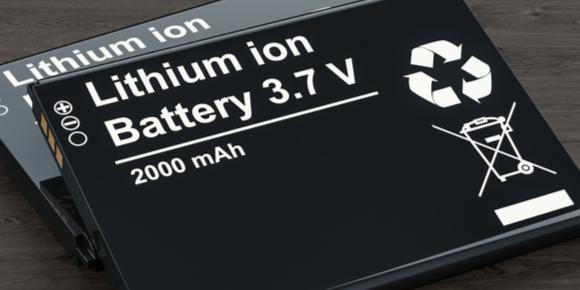
- posted: Mar. 15, 2022
- Products Liability
Lithium-ion batteries are found in everyday items like cell phones, laptops, vaping devices and power tools. They offer high power and long life, some lasting for several years. They are particularly vital to electric vehicles. As more and more EVs and hybrids roll off the assembly lines, and homeowners begin to utilize units such as the Tesla Powerwall to power their houses, we may soon be surrounded by lithium-ion batteries. With the increased use of these power sources, is there a chance for increased failures, and in turn a rise in the number of related lawsuits involving these batteries?
Lithium-ion batteries contain solvents and other flammable chemicals, and when these batteries overheat, they can explode and cause injuries. In 2016, Samsung famously recalled 1 million smartphones because the lithium-ion batteries posed a serious burn hazard to consumers. There have been several high-profile cases involving lithium-ion batteries catching fire in recent years. Additionally, there is concern that when large-format batteries like the ones used in EVs explode or catch fire, they can cause catastrophic damages and even death.
As lithium-ion batteries become more common in our lives, the potential for product liability litigation has increased. On February 16, 2022, State Farm insurance sued Tesla for $1.2 million because of an EV that caught fire while charging in a homeowner’s garage. State Farm alleges that due to a defect in design or manufacture, the Tesla’s electrical system failed while charging the car, which ignited combustibles and caused a house fire. The complaint alleges that the Tesla’s electrical system was unable to regulate the battery cells’ conditions. The suit also alleges that Tesla failed to adequately warn consumers of possible hazards.
If a lithium-ion battery overheats and explodes, is it always the fault of the battery? The short answer is, not always. These are numerous external factors that can cause a lithium-ion battery to fail:
- A faulty charger overcharging the battery
- Charging the battery too quickly or at too high a voltage
- Exposing the battery to high temperatures for an extended period
- Leaving the battery in a hot car
- Putting the battery in contact with metal objects
- Damaging the battery's protective wrapper or seal
- External explosions or fires
In litigation involving allegations of battery failure or defect, it is always important for lithium-ion battery manufacturers to investigate all possible external factors and causes as a key component of their defenses.
Litigation over injuries and damages related to lithium-ion batteries will most likely increase as these batteries become even more commonplace and our economy becomes more dependent on the energy they provide. If you are in the business of manufacturing, designing or distributing products that use lithium-ion batteries, it is imperative to hire an experienced product liability attorney who can help you navigate the pitfalls that may cause you to end up in litigation.
Pullin, Fowler, Flanagan, Brown & Poe, PLLC defends manufacturers and businesses over a range of industries in product liability litigation in West Virginia, Ohio and Kentucky, including lithium-ion battery producers. Call us at 304-344-0100 or contact us online at for an initial consultation.

























































